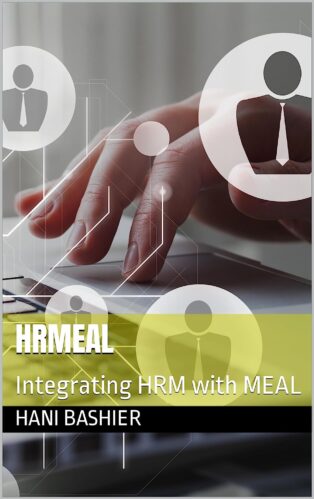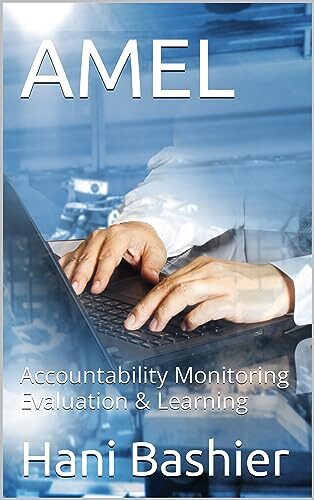The Quality of Monitoring, Evaluation, Accountability, and Learning: Ensuring Excellence in Program Implementation and Impact
The quality of Monitoring, Evaluation, Accountability, and Learning (MEAL) plays a critical role in the success and sustainability of programs and projects. By ensuring that MEAL processes are rigorous, relevant, and useful, organizations can not only improve their program management and impact but also foster a culture of learning, innovation, and continuous improvement. This comprehensive guide will delve into the importance of quality in MEAL, discuss the key dimensions of quality MEAL, and provide practical strategies for enhancing the quality of MEAL systems and practices. The guide will cover the following topics:
- The importance of quality in MEAL
- Key dimensions of quality MEAL
- Strategies for enhancing the quality of MEAL
- Evaluating the quality of MEAL systems and practices
1. The Importance of Quality in MEAL
Quality in MEAL is crucial for several reasons, including:
Program Effectiveness and Efficiency
High-quality MEAL processes enable organizations to systematically track, assess, and improve program performance, which in turn enhances the effectiveness and efficiency of program implementation. By generating reliable, valid, and timely information on program progress and outcomes, quality MEAL facilitates evidence-based decision-making, helps identify areas for improvement, and enables organizations to allocate resources more effectively and efficiently.
Accountability and Transparency
Quality MEAL promotes accountability and transparency by providing relevant, accurate, and accessible information on program performance and impact to stakeholders, including donors, beneficiaries, and the wider public. This information can be used to hold organizations accountable for their actions and decisions, ensure that resources are used responsibly and ethically, and demonstrate the value and impact of program interventions.
Learning and Innovation
Quality MEAL fosters a culture of learning and innovation by encouraging organizations to reflect on program experiences, challenges, and successes, and to use the insights gained from these reflections to inform program planning, adaptation, and improvement. By generating and sharing knowledge, lessons learned, and best practices, quality MEAL can also contribute to organizational learning, capacity-building, and the development of innovative solutions to pressing development challenges.
2. Key Dimensions of Quality MEAL
Quality MEAL can be characterized by several key dimensions, which include:
Relevance and Utility
Relevance and utility refer to the extent to which MEAL processes and findings address the needs, priorities, and interests of program stakeholders, and are useful and actionable for program decision-making, learning, and adaptation. Relevant and useful MEAL processes are characterized by:
- Alignment with stakeholder needs: MEAL processes should be designed to address the key questions, concerns, and priorities of program stakeholders, such as donors, beneficiaries, and implementing partners.
- Timeliness: MEAL findings should be generated, analyzed, and reported on a regular basis, to ensure that they are available when needed to inform program decision-making, learning, and adaptation.
- Accessibility and understandability: MEAL findings should be presented in a clear, concise, and accessible format, using appropriate language, visualizations, and summaries, to ensure that they can be easily understood and used by program stakeholders.
Rigor and Credibility
Rigor and credibility refer to the quality, trustworthiness, and validity of the information generated through MEAL processes. Rigorous and credible MEAL processes are characterized by:
- Methodological rigor: The use of appropriate, robust, and transparent data collection and analysis methods that minimize biases, errors, and uncertainties.
- Triangulation: The integration and comparison of multiple sources of data, perspectives, and methods to enhance the comprehensiveness and validity of MEAL findings.
- Reliability and validity: The consistency and accuracy of MEAL data, as well as its ability to measure what it is intended to measure and to generalize to other contexts or populations.
Participation and Inclusiveness
Participation and inclusiveness refer to the extent to which MEAL processes involve and engage a diverse range of program stakeholders, and are sensitive and responsive to their needs, perspectives, and experiences. Participatory and inclusive MEAL processes are characterized by:
- Stakeholder engagement: Actively involving program stakeholders, including beneficiaries, in the design, implementation, and use of MEAL processes, to ensure that their perspectives, needs, and preferences are taken into account.
- Inclusiveness: Ensuring that MEAL processes and findings are representative of, and accessible to, marginalized and vulnerable groups, such as women, youth, and people with disabilities.
- Responsiveness: Adapting MEAL processes and findings to the specific contexts, cultures, and languages of program stakeholders, in order to enhance their relevance, utility, and credibility.
Adaptation and Learning
Adaptation and learning are core dimensions of quality MEAL, as they enable organizations to use MEAL findings and insights to inform program planning, decision-making, and improvement, and to generate and share knowledge and lessons learned across the organization and beyond. Adaptation and learning in MEAL involve:
- Reflection and learning loops: Regularly reviewing, discussing, and reflecting on MEAL findings and insights, and using these reflections to identify areas for program improvement, adaptation, and innovation.
- Feedback mechanisms: Establishing and maintaining effective feedback loops between MEAL processes and program decision-making, to ensure that MEAL findings and insights are used to inform program planning, adaptation, and improvement.
- Knowledge management and sharing: Systematically capturing, documenting, and sharing MEAL findings, lessons learned, and best practices, both within the organization and with external partners and stakeholders.
3. Strategies for Enhancing the Quality of MEAL
To enhance the quality of MEAL systems and practices, organizations can adopt several strategies, including:
Invest in MEAL Capacity and Infrastructure
Building and maintaining high-quality MEAL systems and practices require adequate capacity and infrastructure, including skilled and experienced MEAL staff, appropriate data collection and analysis tools, and sufficient financial and technical resources. Organizations should invest in capacity-building initiatives, such as training, mentoring, and coaching, to strengthen the skills and competencies of MEAL staff, as well as in the development and maintenance of MEAL infrastructure, such as data management systems, monitoring tools, and evaluation frameworks.
Foster a Culture of Learning and Innovation
Promoting a culture of learning and innovation within the organization can help enhance the quality and impact of MEAL processes and findings. This can be achieved by encouraging open dialogue, critical reflection, and constructive feedback on MEAL practices and findings, and by providing opportunities for staff to learn from one another and from external experts, partners, and stakeholders. Organizations can also create incentives and rewards for learning and innovation, such as recognition programs, innovation challenges, and learning events.
Strengthen Stakeholder Engagement and Participation
Involving program stakeholders, including beneficiaries, in MEAL processes can help enhance their relevance, utility, credibility, and inclusiveness. Organizations should develop and implement strategies for engaging and involving stakeholders in MEAL design, data collection, analysis, reporting, and use, such as participatory monitoring and evaluation methods, stakeholder consultation workshops, and feedback mechanisms.
Promote Quality Assurance and Continuous Improvement
Organizations should implement quality assurance and continuous improvement processes to ensure that MEAL systems and practices meet the highest standards of excellence and are continuously updated and improved based on new insights, experiences, and challenges. These processes may include regular internal and external assessments of MEAL quality, the development of quality standards and guidelines, and the establishment of quality improvement teams or working groups.
4. Evaluating the Quality of MEAL Systems and Practices
To assess the quality of MEAL systems and practices, organizations can use a variety of tools and approaches, such as:
- Self-assessment tools: These tools, such as checklists, questionnaires, and rating scales, can help organizations assess the strengths and weaknesses of their MEAL systems and practices, and identify areas for improvement.
- External reviews and evaluations: Independent experts or external evaluators can be engaged to conduct a comprehensive assessment of the organization’s MEAL systems and practices, providing an objective and unbiased perspective on their quality and effectiveness.
- Benchmarking and comparison: Comparing the organization’s MEAL systems and practices with those of other organizations or industry standards can help identify gaps, strengths, and areas for improvement.
- Feedback and consultation: Soliciting feedback and input from program stakeholders, including beneficiaries, can provide valuable insights into the relevance, utility, credibility, and inclusiveness of MEAL processes and findings.
In conclusion, the quality of Monitoring, Evaluation, Accountability, and Learning plays a vital role in ensuring the effectiveness, efficiency, accountability, and learning potential of programs and projects. By adopting a comprehensive approach to enhancing the quality of MEAL systems and practices, organizations can not only improve their program management and impact but also foster a culture of learning, innovation, and continuous improvement.









